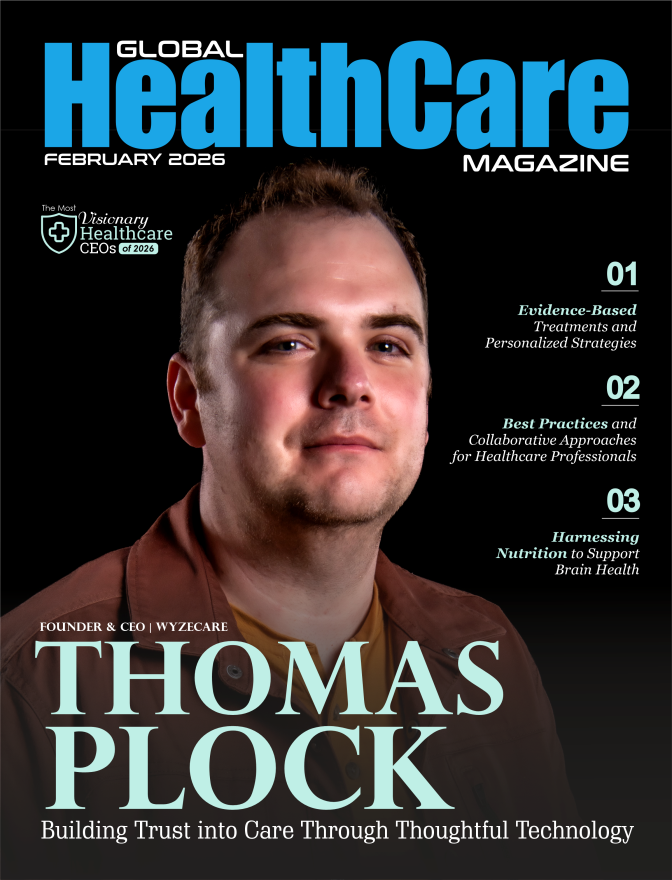Ever really think about the medicines you or your loved ones take every day? Most of us do, at some point, whether it’s a daily pill or helping an older family member manage theirs. It’s just part of life, right? But here’s a crucial insight many people, even doctors sometimes, might miss: a whole group of pretty common medications, both prescription and even those you grab off the pharmacy shelf, carry a bit of a hidden property. They’re called anticholinergic medications. And understanding them? Well, honestly, it could make a real difference for your health, or for someone you deeply care about.
See, these drugs work by doing something quite specific inside your body. While they’re incredibly helpful for certain conditions – they truly are valuable tools – they also come with a set of potential side effects you absolutely should be aware of. Especially as we get older, these effects can, unfortunately, sneak up on us, sometimes leading to unexpected health challenges like memory issues or problems with clear thinking.
This isn’t about causing alarm. Not at all. It’s simply about knowledge. My main goal here is straightforward: to explain these medications clearly. We’ll go through what they are, point out some common ones, and discuss exactly why paying attention to them really matters. Ultimately, this is just to give you some day-to-day helpful information. You’ll walk away better prepared to have a truly informed chat with your own doctor or pharmacist. Remember, this information is to help you learn, never to replace the personalized advice from your trusted healthcare team.
What Exactly Are Anticholinergic Medications?
Many medications play a very important role in our health. But have you ever wondered what they actually look like while working inside your body? Today, we will explore a specific group.
So, what exactly are anticholinergic medications? To put it in simple, not so fancy medical terms, these medicines block the action of a natural chemical. This chemical is called acetylcholine. Think of acetylcholine as a teeny-tiny messenger between your nerve cells that just does its job at its very best. Transferring the signals. These signals control many important body functions. For instance, they help your muscles move. They also manage your memory. Furthermore, they help your digestion.
Anticholinergic medications work by putting up a block. They stop acetylcholine from sending its usual messages. This blockage changes how your body responds. Consequently, it brings about a specific desired effect. For example, some block signals that cause bladder spasms. So, they help with an overactive bladder. Others might dry up excess watery secretions. Therefore, they help ease cold symptoms. Moreover, some can relax their muscles. This helps with certain types of tremors. These anticholinergic medication benefits are clear. They provide relief for various conditions. Doctors prescribe these drugs for many reasons. Knowing how they work helps you understand your treatment better.
Are You Taking an Anticholinergic? Common Culprits
Many folks take medicines every day. You might, too. But here’s a surprise: quite a few common drugs actually have anticholinergic medication properties. What does this mean? Often, people don’t even realize they’re using one. It happens with both prescriptions and those pills you grab from the pharmacy shelf by being your own doc. So, understanding these drugs better becomes really important.
Let’s quickly explore some common types. You might find an anticholinergic medication in your own home right now.
- For Allergies: Think about some older allergy medicines. Many of them contain an anticholinergic. For example, popular ones like diphenhydramine (you know it as Benadryl) and hydroxyzine often fall into this group. Newer allergy pills usually avoid this specific effect.
- Depression Medicines: A few older types of antidepressants, often called tricyclic antidepressants, also carry this effect. Names like amitriptyline and imipramine are good examples here.
- Overactive Bladder: Medicines designed to help a “too-busy bladder” commonly work by blocking acetylcholine. Oxybutynin and tolterodine are pretty well-known in this area.
- Parkinson’s Disease: Sometimes, for certain symptoms of Parkinson’s, doctors prescribe drugs like benztropine. This medicine has a clear anticholinergic action.
- Muscle Relaxers: If your doctor prescribed a muscle relaxant, it just might be an anticholinergic. Cyclobenzaprine is a very common one to be aware of.
- Stomach & Gut Issues: Even some medications for stomach cramps or spasms, like dicyclomine, can have this anticholinergic effect.
- Sleep Aids: Many over-the-counter sleep aids rely on diphenhydramine. Remember, that’s the same ingredient in some older allergy pills. It causes drowsiness due to its strong anticholinergic properties.
By the way, just FYI, this isn’t a full list. Many other drugs could carry these properties. So, if you ever want to wear that white coat and be your own doctor and prescribe yourself any dose of medicine, please, just ask the actual doctor once. If not the doctor (as he might charge for consultation), make a point to speak with your pharmacist. They’re the second-best people to help you understand your medications completely.
The Side Effects: More Than Just Dry Mouth
You’ve now learned about many medications. Perhaps some are in your own medicine cabinet. Now, it’s really important to talk about their effects. When you take an anticholinergic medication, some side effects are quite common. For instance, many people notice a very dry mouth. Your vision might get a little blurry, too. Furthermore, you could experience constipation. Sometimes, going to the bathroom for urination might become difficult. Feeling drowsy or sedated is also very typical. These are the “expected” physical effects.
However, we need to focus on some much more serious concerns. These are especially important for older adults. Taking an anticholinergic medication can affect your brain. This is a critical point for caregivers to understand as well.
Here are the key points to consider:
- Memory and Thinking Problems: This is perhaps the biggest concern. These medications can cause confusion. You might feel disoriented. Concentrating on tasks can become harder. Memory problems may start or worsen. Over a longer time, consistent use of an anticholinergic medication has links to an increased risk of dementia. This is a significant finding.
- Increased Risk of Falls: These drugs can make you feel dizzy. They might affect your balance. Your movements could become unstable. All of this significantly raises your chance of falling. A fall, especially for an older person, can lead to serious injuries.
- Sudden Confusion (Delirium): Some people might experience a sudden, acute state of confusion. Doctors call this delirium. It comes on quickly. This is also a strong indicator that medication might be playing a role.
Why are older adults more vulnerable? Well, as we age, our bodies change. Our kidneys might not remove medicines as quickly. Also, the brain’s natural defenses change. This means the medication can affect the brain more easily.
Finally, we must talk about the “anticholinergic burden.” Imagine taking several medicines. Each one might have only a small anticholinergic effect. Yet, when you take them together, these small effects add up. This combined “burden” significantly increases your risk. The side effects become more severe. Therefore, a careful review of all your medications becomes essential. It’s about the total effect on your system.
Taking Action: What You Can Do
Okay, so you’ve just soaked in a lot about anticholinergic medication and its effects. And its fine if you are feeling a bit concerned? Honestly, that’s a perfectly normal reaction. But look, here’s the absolute first, most vital rule: please, don’t ever just stop taking a prescribed medicine on your own. Seriously. Quitting abruptly can actually be quite dangerous. It might even create bigger problems for you. Always talk to your doctor first.
So, what can you do then? Here’s where you step in. Having a real, open conversation with your doctor or pharmacist is truly your best move. They are absolutely and always on your side, ready to help.
To make that chat really productive, consider these simple steps:
- Round Up Everything: Get all your medications together. And I mean everything. Your prescriptions, those over-the-counter pills, even your vitamins or herbal supplements. Every single one matters.
- Share What’s New: Have you noticed any changes? Perhaps new memory hiccups? Are you feeling a bit more confused than usual? Have you had any unexpected stumbles or falls? These are huge clues; share them all.
- Just Ask Directly: A simple question: “Do any of my medications have anticholinergic effects?” They can check right there. Knowing this gives you real power.
- Explore Other Paths: “Are there other options for me?” Ask about different medicines, or maybe even a lower dose. Sometimes, non-drug approaches can work wonders, too.
- Request a Medication Check-up: Especially for senior citizens, ask for a “medication review.” It’s like a full check-up for all your drugs, ensuring they’re still working safely together.
Being proactive is key here. You become your best advocate. And for those caring for loved ones, this knowledge helps you protect them.
Oh, and for those milder side effects, a few simple tricks can help. Dry mouth? Keep water nearby, sip often. Sugar-free gum helps, too. For constipation, try upping your fiber intake — eye more fruits, veggies, and whole grains. These small steps can bring some comfort while you work closely with your healthcare team.
Key Takeaways
So, we’ve covered quite a bit about anticholinergic medication today. What should you really walk away with from all this information? It boils down to a few critical points, all designed to empower you and keep you safe.
First off, many common medicines carry these specific properties. Think about those allergy pills, some older antidepressants, or even certain bladder medications. You might be taking one right now without fully realizing it. Therefore, simply knowing this fact is a huge step.
Next, while these drugs help with many conditions, their side effects can include more than just a dry mouth or constipation. For some people, especially older adults, we notice a significant impact on memory, thinking, and even balance. The link between anticholinergic medication and cognitive health is something we now understand much better. It is truly an important piece of the puzzle. The combined “burden” from several such drugs also significantly increases risk.
Finally, and this is probably the most important message: you have a key role in your health journey. Please, never stop any medication on your own. Instead, talk to your doctor or pharmacist. Bring a list of all your medicines. Ask them directly about anticholinergic effects. Inquire about possible alternatives. Request a medication review. Being proactive, asking questions, that’s where your power lies. You become a truly informed partner in your own care, or for your loved ones. This knowledge, ultimately, helps you make safer, smarter health choices.













